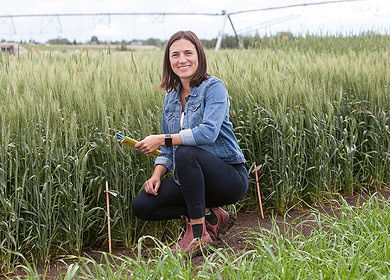Federal funding boosts agricultural genomics research at University of Saskatchewan

The University of Saskatchewan (USask) is set to advance Canadian agricultural genomics through a new initiative, the Agriculture Genomics Action Centre (AGAC), backed by substantial federal and provincial funding. The project, co-led by the Global Institute for Food Security (GIFS) at USask, will function as a central knowledge hub for genomics research, compiling data from nine major agricultural genomics projects that started in 2023.
This initiative, powered by a collaboration between Genome Canada, Genome Prairie, Genome British Columbia, and Ontario Genomics, aims to make genomic research findings accessible to academic circles, government entities, non-profits, and industry stakeholders. These collaborations are pivotal in propelling the growth of Canada’s agricultural sector.
The federal funding announcement made on Tuesday confirmed a total investment of approximately $4.7 million into the AGAC project. This includes $2.3 million from the Ministry of Innovation, Science, and Economic Development via Genome Canada and an additional $2.4 million from various provincial government bodies and industry partners.
Dr. Nancy Tout (PhD), Chief Scientific Officer of GIFS at USask, will co-lead the AGAC project along with Dr. Lupin Battersby (PhD) from Simon Fraser University and Elizabeth Shantz from the University of Guelph. Dr. Tout emphasized the commitment of the Global Institute for Food Security to foster partnerships that enhance research and innovation aimed at delivering market-ready, sustainable agricultural solutions.
The AGAC is expected to provide essential data that will support ongoing research efforts geared towards fostering a more sustainable agricultural future. Set to be fully operational by 2027, the Centre is part of the broader Climate-Smart Agriculture Food Systems initiative, which invests in cutting-edge agricultural genomics research. Notably, two USask-led genomics projects, one focusing on the genetic diversity of Canada’s grasslands and another on reducing synthetic fertilizer use and greenhouse gas emissions through innovative crop breeding strategies, are included in the nine projects supported by this initiative.
Enjoyed this story?
Every Monday, our subscribers get their hands on a digest of the most trending agriculture news. You can join them too!















Discussion0 comments